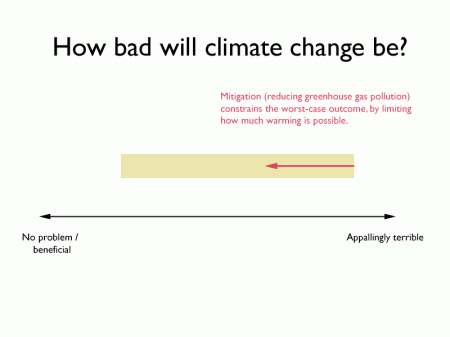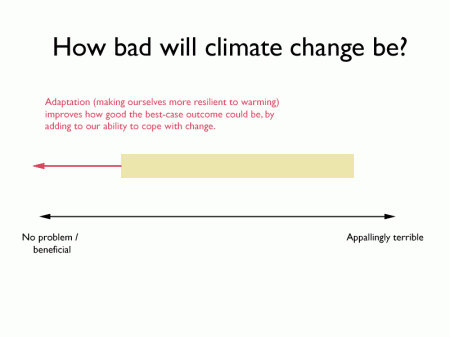There are two big sets of actions people can take as rational responses to the threat of climate change: mitigation and adaptation.
When we mitigate, we work to produce less greenhouse gas pollution. This limits how much warming can take place.
When we invest in adaptation, we invest in ways to protect ourselves from warming, like building sea walls to protect against rising sea levels.
These two types of action have different effects on the risk humanity is facing. Specifically, mitigating reduces how bad the worst-case scenario will be. Adaptation improves how good the best-case scenario could be.
In the following graphics, the quantity being measured along the horizontal axis is human suffering. We cannot be sure exactly what the correct value is, but we have good reason to believe that it is within the range defined by the yellow bar.
With no action:
With mitigation:
With adaptation:
Given how bad climate change could be, I think the strong emphasis must be on mitigation. It is as though you are a patient, about to have an operation. The surgeon tells you that with the normal operation, there is a 10% chance that you will lose a leg and a 5% chance you could die. She then tells you that they can modify the operation in one of two ways:
a) Cut the chance of losing a leg to 5%
b) Cut the chance of dying to 2.5%
It seems far more sensible to choose option b.
With climate change, we don’t need to choose ‘100% mitigation’ or ‘100% adaptation’. Nonetheless, I think the same logic that lies behind the surgical decision lies behind the moral imperative for humanity to concentrate on mitigation.


